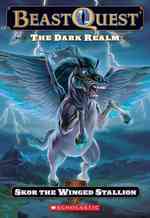- ホーム
- > 洋書
- > 英文書
- > Psychology
基本説明
Brings together the key articles on Game Theory published over the past half century and supplements them with section introductions. Also contains a large number of newer cutting-edge articles.
Full Description
This landmark volume brings together the key articles on Game Theory published over the past half century and supplements them with section introductions and pedagogical features to help graduate students and advanced undergraduate students explore the key tenets of the discipline. Starting with John Nash, many of the articles are classics in the field, but the book also contains a large number of newer cutting-edge articles that are likely to form the basis of the discipline in the future.
The articles are presented in nine sections. Each section opens with an introductory article that places the articles within in context and guides the reader in their further reading. Key topics explored within this book include:
Repeated Games
Incomplete Information
Learning and Evolutionary Game Theory
Political Economy and Behavioral Economics
Among the authors whose work is produced are Ariel Rubinstein, Robert Aumann, Roger Myseron, Drew Fudenberg and Matthew Rabin. The Reader is edited by Muhamet Yildiz of the Massachusetts Institute of Technology.
Contents
Introduction Section One: Equilibrium and Its Refinement Non-Cooperative Games (J. Nash) Reexamination of the Perfectness Concept for Equilibrium Points in Extensive Games (R. Selten) Sequential Equilibria (D. Kreps and R. Wilson) Section Two: Major Economic Applications Perfect Equilibrium in a Bargaining Model (A. Rubenstein) A Theory of Auctions and Competitive Bidding (P. Milgrom and R.Weber) Efficient Mechanisms for Bilateral Trading (R. Myerson and M. Satterthwaite) Section Three: Repeated Games The Folk Theorem in Repeated Games with Discounting or with Incomplete Information (D. Fudenberg and E. Maskin) Noncooperative Collusion under Imperfect Price Information (E. Green and R. Porter) Toward a Theory of Discounted Repeated Games with Imperfect Monitoring (D. Abreu, D. Pearce and E. Stacchetti) Games with Imperfectly Observable Actions in Continuous Time (Yuliy Sannikov) Section Four: Reputation Formation Rational Cooperation in the Finitely Repeated Prisoners' Dilemma (D. Kreps, P. Milgrom, J. Roberts and R. Wilson Reputation and Equilibrium Selection in Games with a Patient Player (D. Fudenberg and D.K. Levine) Bargaining and Reputation (D. Abreu and F. Gul) Section Five: Supermodular and Global Games Rationalizability, Learning, and Equilibrium in Games with Strategic Complementarities (P. Milgrom and J. Roberts) Global Games and Equilibrium Selection (H. Carlsson and E. Van Damme) Unique Equilibrium in a Model of Self-Fulfilling Currency Attacks (S. Morris and H. Song Shin) Section Six: Robustness to Incomplete Information The Electronic Mail Game: Strategic Behavior under "Almost Common Knowledge" (A. Rubinstein) The Robustness of Equilibria to Incomplete Information (A. Kajii and S. Morris) A Structure Theorem for Rationalizability with Application to Robust Predictions of Refinements (J. Weinstein and M. Yildiz) Section Seven: Foundations of Game Theory Correlated Equilibrium as an Expression of Bayesian Rationality (R. Aumann) The Bayesian Foundations of Solutions Concepts of Games (T. Tan and S. Werlang) Epistemic Conditions for Nash Equilibrium (R. Aumann and A.Brandenberger) Section Eight: Learning and Evolutionary Game Theory The Logic of Animal Conflict (J. Maynard Smith and G. R. Price) Learning, Mutation, and Long-Run Equilibria in Games (M. Kandori, G Mailath and R. Rob) Learning, Local Interaction, and Coordination (Glenn Ellison) Self Confirming Equilibrium (Drew Fudenberg and David K. Levine) Section Nine: Game Theory without Traditional Assumptions Psychological Games and Sequential Rationality (J. Geanakoplos, D. Pearce, and E. Stacchetti) Incorporating Fairness into Game Theory and Economics (M. Rabin) On the Interpretation of Decision Problems with Imperfect Recall (M. Piccione and A.Rubinstein) Bargaining without a Common Prior: an Immediate Agreement Theorem (M. Yildiz)








